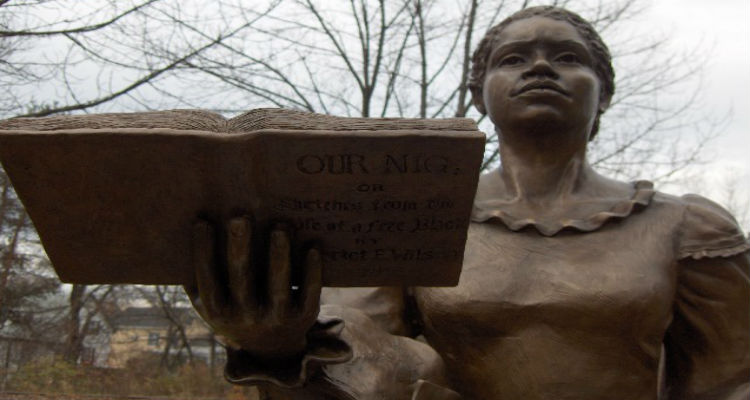In 1825, in the small town of Milford, New Hampshire, Harriet E. Wilson was born into a world of contradictions. Her mother was white, her father Black — a union that marked Harriet with the weight of prejudice before she could even understand what it meant. When her mother died, Harriet was still a child. Instead of being taken into a loving home, she was placed with a white family. There, she was not treated as a daughter, nor even as a guest, but as a servant. Her childhood slipped away in endless labor and loneliness, as if life itself intended to harden her with struggle.
With little education, Harriet was bound to the life of an indentured servant, even in the North — a land that proclaimed freedom but refused her humanity. As she grew older, she married, hoping for comfort and stability. But fate was merciless: her husband abandoned her, leaving Harriet to care for their sickly child alone. With rough, work-worn hands, she stitched clothes, scrubbed floors, and took on any job she could find, clinging to survival for her son’s sake.

Amid this hardship, Harriet accomplished something extraordinary. In 1859, she published Our Nig; or, Sketches from the Life of a Free Black — the first novel written and published by an African American woman in the United States. In its stark and fearless pages, Harriet exposed an uncomfortable truth: racism thrived not only in the slaveholding South, but in the so-called “free” North as well. It was a daring, unflinching voice — but one the world was not ready to hear. The book sold poorly. The dream of supporting her son through her writing faded, and Harriet remained in poverty. When her child died, the loss was devastating, another cruel chapter in her already burdened life.

Eventually, Harriet moved to Boston, where she found community in the spiritualist movement. There, she became a reformer and healer, offering comfort to others even while carrying her own scars. In 1900, Harriet Wilson died in obscurity, her grave unmarked, her name nearly erased from memory.
But history refused to let her words vanish. In 1982, scholar Henry Louis Gates Jr. rediscovered Our Nig, restoring Harriet Wilson to her rightful place in American literary history. From obscurity, she emerged again — the first African American woman novelist, a pioneer who dared to reveal truths her society wanted hidden.
The life of Harriet E. Wilson is a testament to resilience and courage. From loss and hardship, from forgotten pages, her voice rose once more. Today, it endures — a reminder that even words once silenced can return to illuminate history.





